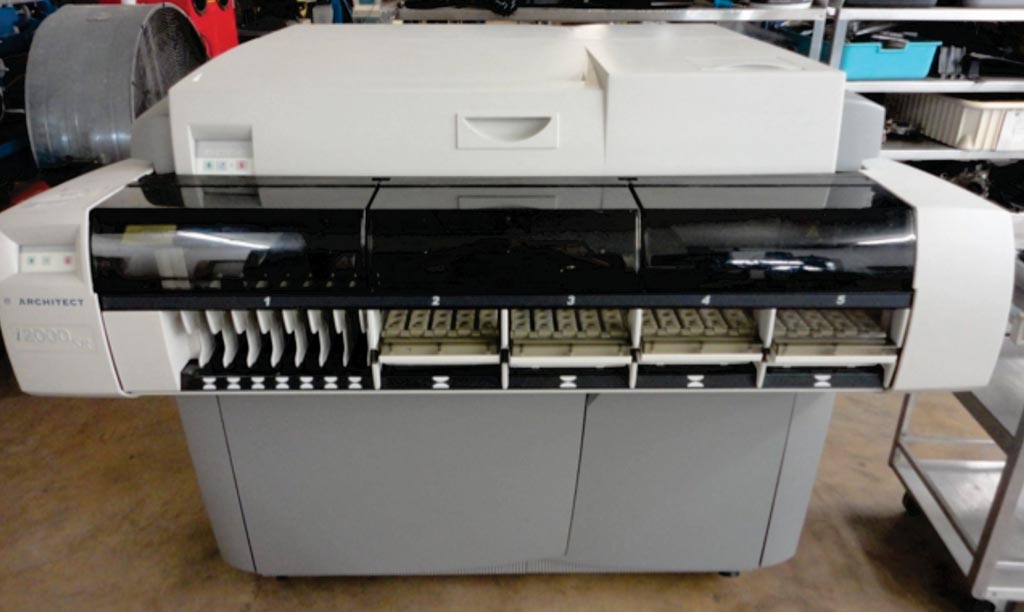C-Peptide Test Essential after Type 1 Diabetes Diagnosis
By LabMedica International staff writers
Posted on 03 Apr 2019
C-peptide testing a few years after a diagnosis of type 1 diabetes should be a routine procedure as it can help pinpoint occasional patients who have been misdiagnosed and actually have type 2 diabetes or a monogenic form of the disease.Posted on 03 Apr 2019
C-peptide testing is a means of determining patients' endogenous insulin levels and was once routinely used in type 1 diabetes diagnoses until it was realized that there is often a 'honeymoon period' during which patients still have residual beta-cell activity, making the test outcome a little unreliable.

Image: The Architect I2000sr immunoassay (Photo courtesy of Abbott).
Scientists at the Western General Hospital (Edinburgh, UK) introduced routine serum C‐peptide testing using ARCHITECT immunoassay in their center for patients with a clinician diagnosis of Type 1 diabetes of at least three years’ duration. C‐peptide equal to or greater than 200 pmol/L prompted evaluation for other causes of diabetes.
Of 637 people tested, 548 (86%) had C‐peptide less than 200 pmol/L, consistent with a diagnosis of Type 1 diabetes. Eighty‐nine patients (14%) had C‐peptide equal to or greater than 200 pmol/L. Eleven patients had C‐peptide greater than 900 pmol/L with negative autoantibodies and their diagnosis was revised to type 2 diabetes. The team reported that five patients have switched from insulin to alternative anti‐diabetic therapy.
Eighteen patients had C‐peptide 600 to 900 pmol/L. Of these, six patients had at least one positive autoantibody and were all considered to have Type 1 diabetes. One of these individuals has discontinued insulin and was managed on oral anti‐diabetic therapy. Ten had negative autoantibodies, of who six were considered to have Type 2 diabetes. One patient had a HNF1α mutation and has discontinued insulin. Sixty patients had C‐peptide 200 to 600 pmol/L. Twenty‐eight patients had positive autoantibodies, while 22 had negative autoantibodies; one patient had mitochondrial diabetes and two had a HNF4α gene mutation.
Andrew Hattersley, MD, CBE, who presented the study, said, “If you transfer the blood on EDTA plasma it lasts for 24 hours. All samples that might be taken for HbA1c can also actually be used to measure C-peptide now. The sample can be taken randomly in the nonfasting state. Data has shown the only thing that matters is that the patient shouldn't be hypoglycemic, nor do patients need to be taken off their insulin treatment because we have tested that too and it made minimal difference to the C-peptide measurement.” The study was presented on March 7, 2019, at the Diabetes UK Professional Conference (DUPC) held in Liverpool, UK.
Related Links:
Western General Hospital













